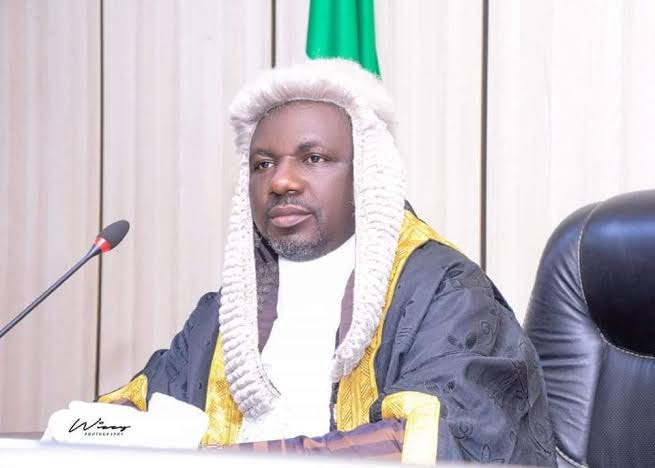The Speaker of the Benue State House of Assembly, Aondona Dajoh, has ordered the immediate release of all youths arrested during recent protests across the state, positioning himself in direct opposition to the state’s governor, Hyacinth Alia.
The order was issued on Tuesday during an emergency plenary session held in Makurdi. The session was convened in response to growing public criticism following the detention of several citizens who had participated in demonstrations against the surge of killings and insecurity in Benue State.
Addressing the lawmakers, Speaker Dajoh reaffirmed the Assembly’s commitment to upholding democratic norms and protecting the constitutional rights of Benue residents. He stated unequivocally that the right to protest peacefully is guaranteed under Nigeria’s constitution and must be respected by all arms of government.
“Peaceful protest is a constitutional right,” Dajoh declared on the floor of the Assembly. “No one should be punished for exercising their voice in a democratic society.”
The Speaker’s statement was met with applause from several members of the House and received praise from human rights organizations and civil society groups. His remarks were interpreted as a clear rebuke of the handling of recent protests by state authorities, which have drawn criticism for excessive force and arbitrary arrests.
According to reports, protests erupted across parts of Benue State in recent days as residents voiced their anger over worsening insecurity. Protesters called for urgent action from the state government, accusing it of failing to protect lives and property amid a rise in violent attacks, particularly in rural communities.
Following these protests, security forces reportedly arrested a number of young demonstrators. The move was widely condemned by civil rights groups, who accused the authorities of stifling free expression and failing to address the root causes of the public unrest.
Speaker Dajoh’s directive now adds a new layer of political tension between the legislative and executive branches of the Benue State Government. His call for the immediate release of the detained protesters is seen as a direct challenge to Governor Alia, under whose administration the arrests were made.
In his address, Dajoh emphasized the need for professionalism among security agencies when dealing with public demonstrations. He urged security personnel to act with restraint and to respect the fundamental rights of all citizens, particularly those exercising their right to peaceful assembly.
The Speaker also announced that the Assembly would launch an inquiry into the circumstances surrounding the arrests. Lawmakers pledged to engage relevant authorities to ensure accountability and to prevent similar incidents from occurring in the future.
While Governor Alia has not publicly responded to the Speaker’s comments, the incident has further fueled a growing perception of discord within the Benue State Government. Analysts suggest the move by the Speaker could indicate increasing independence from the executive arm and a stronger stance by the legislature in protecting civil liberties.
The emergency plenary session and the Speaker’s directive have been welcomed by residents and activists who view the development as a necessary step toward restoring public confidence in the state’s democratic institutions.
Civil society groups have also urged the Benue State Government to prioritize addressing the root causes of the insecurity crisis that prompted the protests. Many have called for a comprehensive strategy to tackle violence in rural areas, improve intelligence gathering, and enhance cooperation between communities and security agencies.
As of Wednesday morning, it remained unclear whether the detained protesters had been released, but Speaker Dajoh’s order has placed pressure on security agencies to comply. Rights groups continue to monitor the situation closely, warning that failure to act swiftly could deepen public resentment and heighten tensions in the state.
The Benue State House of Assembly’s stance marks one of the most significant institutional responses to the growing frustration among residents over insecurity and perceived governmental inaction. The development is being watched closely as a possible turning point in the balance of power within the state’s political structure.





